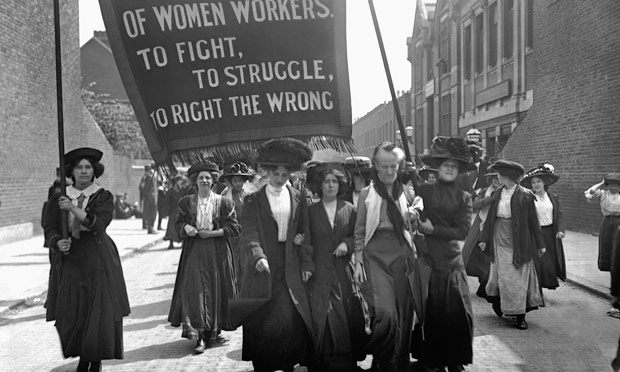I have been wanting to write about the Harvey Weinstein scandal and its implications since the news broke. But it has taken me a while to consider what I thought I might add to the debate. There has, understandably, been a huge amount of comment around the revolting behaviour which has finally been made public.
In discussion with a friend last week, I was saying that I had no experience of such treatment. But then as we talked, we realised that we both could name many times when our gender had been used to make us uncomfortable or afraid. For example, I worked on London trading floors in the Nineties. Barely a senior woman in sight and you were forced to push between lines of blokes to deliver any message or file. They would push back on their wheelie chairs to intimidate you. My friend and I could both name times when we had been groped at bars, shouted at in the streets, felt unsafe to be somewhere, etc. Imagine if a woman grabbed a man's crotch whilst queuing for a drink or screamed about his trouser bulge from across the street?
Earlier this year, I blogged about Naomi Alderman's book The Power. It tells of a world where women are in charge and I commented on how shocking the anti-male violence seems in the book yet the author is describing little that is not, in our world, being perpetrated against women.
And I think this is one of the most telling points with the Weinstein scandal. Men like him - and lets be fair, he is hardly even the tip of the iceberg - have felt able to continue their activities because the world is still so skewed towards the idea of the inferiority and subjugation of women.
Last week, I watched a documentary about the suffragettes. It really struck a chord when it talked of the disgusting language which the press and politicians of the time felt able to continually use about women. Many of us know of the force feeding and other violence towards the suffragettes but I had not realised quite how appalling the anti-suffragette campaign had been in other ways.
We live in a world where the press cannot be as overt as they were then about their hatred of equality for women. But every day women are written about and spoken of as inferior to men. It is completely ingrained. Criticism for working or for not working. Comment on signs of ageing, shapes of bodies. The deification of motherhood but the insistence that you should snap back into physical and mental health after giving birth. After I watched the documentary, I looked at the Daily Mail website - a loathsome place but I braved it for research purposes. Here are some examples of the language used about photographs of female presenters and actresses going about their daily lives:
'putting on a leggy display' - wearing shorts in a hot place
'packing on the PDA' - giving their partner a peck on the cheek
'flashes a glimpse of' - a photographer has managed to get an upstart or down top picture
'steps out in racy...' - wearing a strappy top
'showcasing her...' - dressed in something figure hugging, short, etc.
And so on, ad infinitum. It is considered acceptable to comment on female presenters' or journalists' ages, outfits and bodies even though they are doing the same work as their grey-suited, ageing male colleagues. No-one takes to exception that we have only ever had two British female prime ministers and language is used about them which would never be used about males. Look at the questioning suffered by female politicians about their life plans and intentions. And as for women in business or positions of responsibility? Can open, worms everywhere. And these worms are not turning. We are not breaking the ceilings because they are not glass. They are institutionalised, conditioned, brainwashed steel. In other blog posts, I have mentioned to need for us to stay angry. The Women's Marches were a start, the brave women speaking out about Weinstein and others are another step on a long road. But a road which must be travelled if we are to do right by the next generation. Our ancestors fought for the vote, for equality. They achieved a lot. But so much more remains to be done.


No comments:
Post a Comment